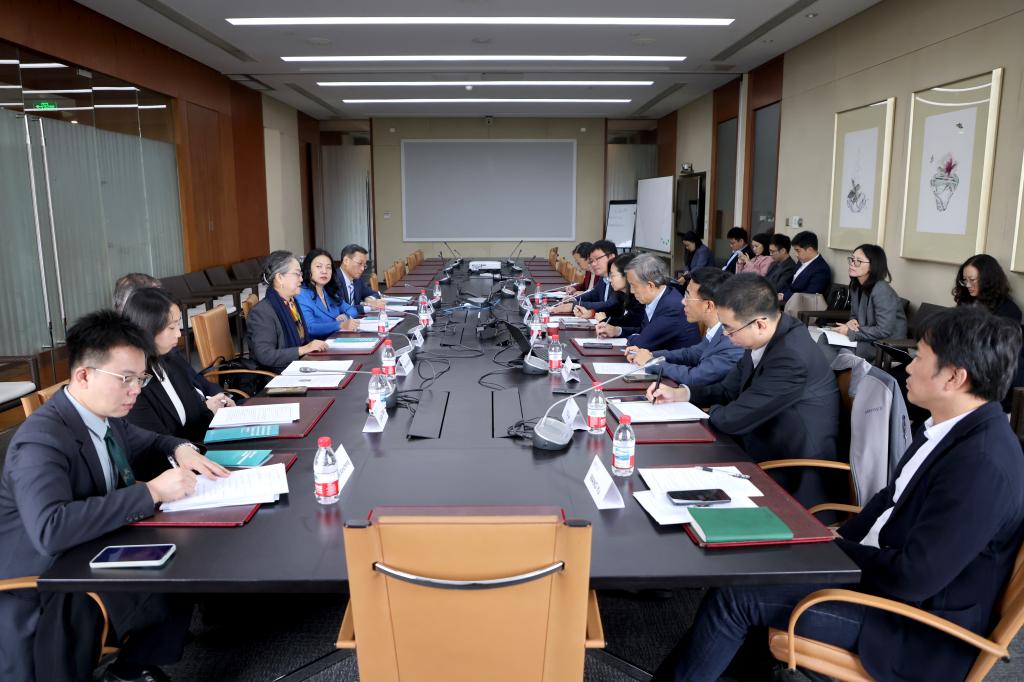On the morning of October 15, a delegation led by Ms. Armida Salsiah Alisjahbana, Under-Secretary-General of the United Nations (UN) and Executive Secretary of the UN Economic and Social Commission for Asia and the Pacific (ESCAP), visited Tsinghua’s Institute for AI International Governance (I-AIIG).

The delegation held a roundtable discussion with experts and scholars from I-AIIG, the Department of Energy and Power Engineering, the Department of Electronic Engineering, the Department of Earth System Science, and the Department of Automation, during which they learned about the university’s cutting-edge research and innovative practices in artificial intelligence across multiple disciplines.
The meeting was chaired by Professor Xue Lan, Dean of I-AIIG. He introduced I-AIIG’s work in supporting governmental policy-making on AI development and engaging in global AI governance cooperation. “Through international workshops, youth innovation competitions, and global dialogues, we aim to advance AI technologies responsibly and inclusively,” Xue remarked.

Professor Xu Ruina from the Department of Energy and Power Engineering presented the latest update on the “Energy Brain” project, which applies AI to enhance the perception, memory, and reasoning abilities of energy systems. The project promotes the integration and intelligent decision-making of multi-energy systems, contributing to clean energy transition and global climate governance.

Professor Yu Le from the Department of Earth System Science introduced research on building a “Climate-Resilient Agriculture” system that integrates remote sensing and AI technologies. “By combining multi-source data and models, our system supports agricultural decision-making, especially in regions frequently affected by extreme weather conditions,” he explained.

Professor Feng Shuo from the Department of Automation shared his team’s breakthroughs in improving the safety of autonomous driving. The team has developed a generative AI-based virtual testing environment that leverages global driving scenario data to significantly enhance testing efficiency and safety performance.

Professor Wang Yu from the Department of Electronic Engineering presented the department’s efforts to democratize computing resources. Their platform effectively integrates diverse computational resources to provide affordable, high-quality computing support for AI education and research, promoting inclusive access to AI technologies.

Ms. Alisjahbana commended Tsinghua University’s remarkable achievements in AI research. “Tsinghua’s work aligns closely with ESCAP’s priorities in advancing regional energy transition, agricultural technology, smart mobility, and road safety,” she noted. “The rapid development of AI promises tremendous opportunities—along with challenges—to the Asia-Pacific region. I look forward to deepening our collaboration with Tsinghua to promote sustainable development in the region.”
